
Usmar Ismail was an Indonesian film director, author, journalist and revolutionary of Minangkabau descent. He is widely regarded as the native Indonesian pioneer of the cinema of Indonesia.

Soekarno M. Noor was an Indonesian actor and film producer. He acted in 118 films and dramas.

Lewat Djam Malam is a 1954 Indonesian film directed and produced by Usmar Ismail and written by Asrul Sani. Widely regarded as a classic of Indonesian cinema, the film follows an ex-soldier in his vigilante actions against corruption.

Lilik Sudjio was an Indonesian actor turned film director who won the Citra Award for Best Director in 1955 for his film Tarmina. He was involved in 74 feature film productions since his debut in Fred Young's Saputangan in 1949.

Tarmina is a 1954 Indonesian film directed by Lilik Sudjio. It stars Fifi Young, A. Hadi and Endang Kusdiningsih. It received five awards at the first Indonesian Film Festival in 1955, including Best Film, Best Director for Lilik Sudjio, Best Leading Actor for A. Hadi, Best Leading Actress for Fifi Young, and Supporting Actress for Endang Kusdiningsih.
Nawi Ismail was an Indonesian film director and actor. He often worked with Dicky Zulkarnaen and Benyamin Sueb.

Dhalia was an Indonesian actress active for over fifty years. She was nominated for three Citra Awards at the Indonesian Film Festival, winning one.

Boes Boestami was an Indonesian journalist and film actor. He was mostly known for his comedic roles.
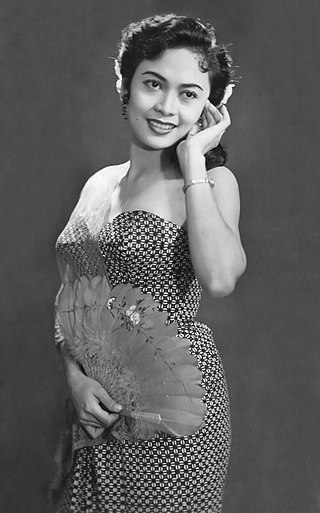
Ermina Zaenah is an Indonesian actress and film producer who was active in the 1950s and 1960s. She is part of Classical Indonesian Cinema.

Raden Ajeng Titien Sumarni was an Indonesian actress who was active in the 1950s. Born in Surabaya, she moved to Tasikmalaya as a child and developed an interest in stage acting, trained by her uncle and future husband Mustari, later acting for republican troops during the Indonesian National Revolution. Sumarni began acting in film in 1951, making her debut with Seruni Laju. Over her five-year career Sumarni acted in thirty films, established her own film production company, and became one of the most popular Indonesian actresses of her time. Following her final film, Djandjiku (1956), Sumarni fell out of the spotlight, eventually dying at very young age.
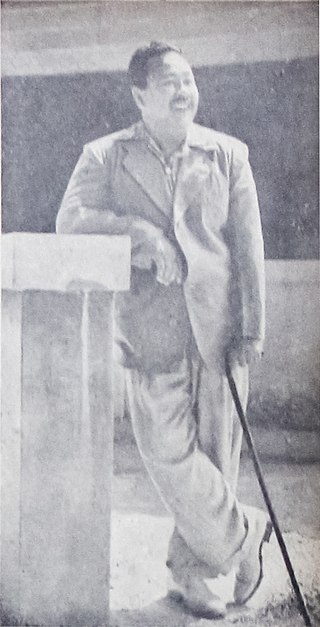
S. Poniman was an Indonesian kroncong singer and comic actor. Born in Banda Aceh in 1910, he took up singing and made his way to Batavia. In 1940 he made his debut as music director and actor on the film Kedok Ketawa, completing three further productions before the Japanese occupation brought film production to a near-standstill. Poniman spent time as a soldier and truck driver before returning to the film industry in 1951, after Indonesia's independence, as a star of Dunia Gila. Between 1951 and 1958 he appeared in more than twenty films before leaving the struggling industry to become a trader. Though he appeared in several further films before his death, Poniman never regained his stardom.

Marlia Hardi was an Indonesian actress who was active from 1950s to 1980s. Born in the Magelang, she took to the stage in the 1940s before moving to Jakarta in 1949. Two years later she made her feature film debut in Untuk Sang Merah Putih. Over the next two decades she appeared in over seventy films, became recognized for her depictions of mothers, and received the Citra Award for Best Supporting Actress. Despite her productiveness, however, she sank into debt and committed suicide at the age of fifty-eight.
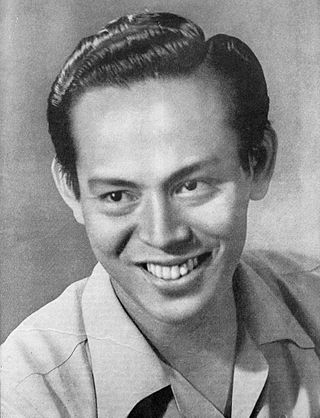
Raden Soekarno, better known as Rendra Karno, was an Indonesian actor. Born in Kutoarjo, Central Java, Soekarno entered the film industry in 1941, making his debut appearance in Union Films' Soeara Berbisa. Over the next forty years he appeared in more than fifty films. He was also involved in the theatre during the Japanese occupation of the Dutch East Indies and the Indonesian National Revolution. For his role in 1962's Bajangan di Waktu Fadjar, he was named best supporting actor at the 1963 Asian Film Festival in Tokyo.
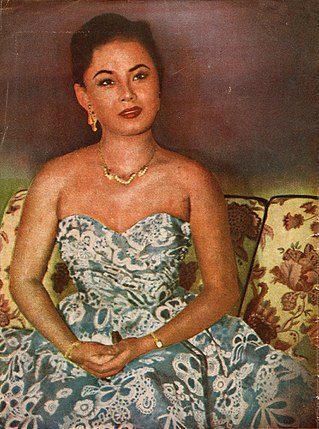
Netty Herawaty was an Indonesian actress who made more than fifty films between 1949 and 1986.

Darussalam was an Indonesian actor who appeared in more than seventy films in his forty-year career. Born in Bengkulu, he studied to be nurse before migrating to theatre during the Japanese occupation of the Dutch East Indies, marrying Netty Herawaty while with the troupe Irama Masa. The couple spent the remainder of the occupation and the ensuing revolution touring the archipelago with a number of troupes. In 1949, Darussalam and Herawaty made their feature film debut in Fred Young's Saputangan, appearing in seven further Young productions before migrating to Djamaluddin Malik's Persari. During their eight years with the company, Darussalam and Herawaty travelled to the Philippines and Singapore and found popularity among audiences, though Darussalam remained in his wife's shadow.

Frieda Thenu, better known by the stage name Farida Arriany, was an Indonesian actress, model, and singer. She was named the most successful Indonesian film star in 1960s.
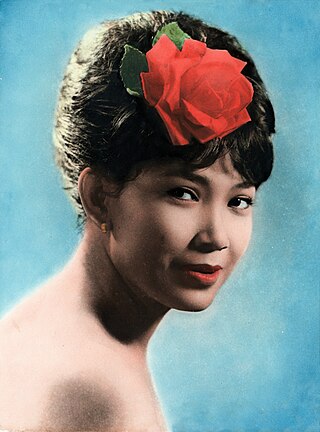
Marjolein Tambayong, better known by her stage name Rima Melati or by her nickname Lientje, was an Indonesian actress, model, and singer. She appeared in close to one hundred feature films, including works by Wim Umboh, Sjumandjaja, and Teguh Karya. She received multiple awards, including a PWI Award for Best Actress for Noda Tak Berampun, a Citra Award for Best Leading Actress for Intan Berduri, and five nominations for the Citra Award for Best Supporting Actress.

Abdul Hamid Arief was an Indonesian actor who appeared in more than 120 films. Born in Batavia, Dutch East Indies, he started his acting career in theatre before migrating to film with 1948's Anggrek Bulan. His first starring role, and the one from which he first gained recognition, was as the title character in Pangeran Hamid. Over subsequent decades he was a productive film actor, often appearing in four or five films a year. He also acted in various television series.
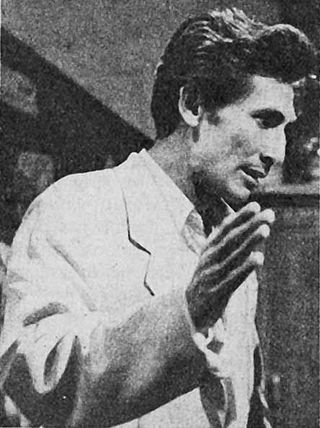
Achmad Nungcik Alcaff was an Indonesian actor and film director who won the Citra Award for Best Leading Actor at the 1955 Indonesian Film Festival.
The Citra Award for Best Supporting Actor is an award given at the Indonesian Film Festival (FFI) to Indonesian actresses for their achievements in a supporting role. The Citra Awards, described by Screen International as "Indonesia's equivalent to the Oscars", are the country's most prestigious film awards and are intended to recognize achievements in films as well as to draw public interest to the film industry.


















